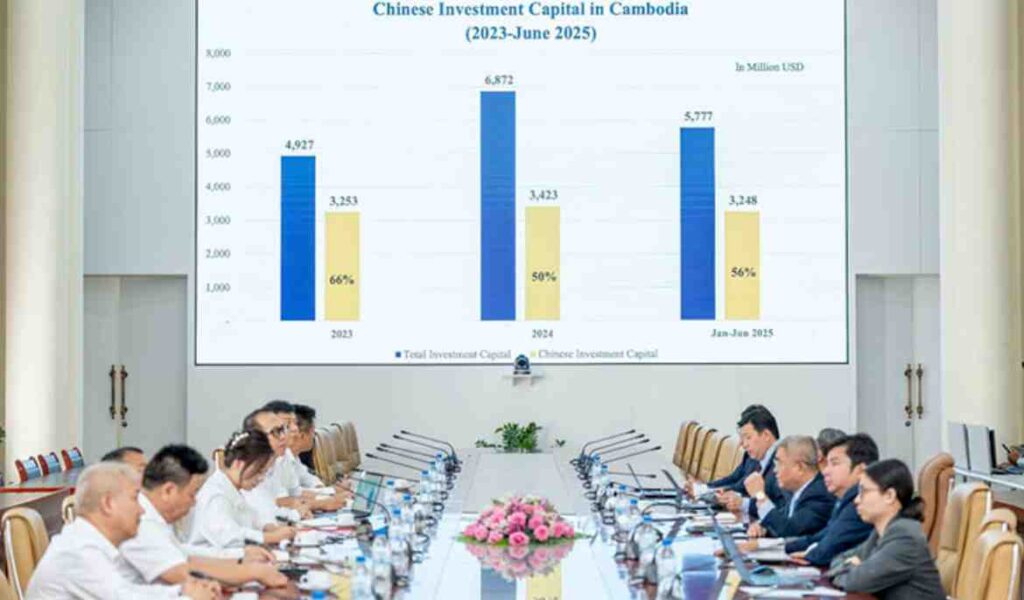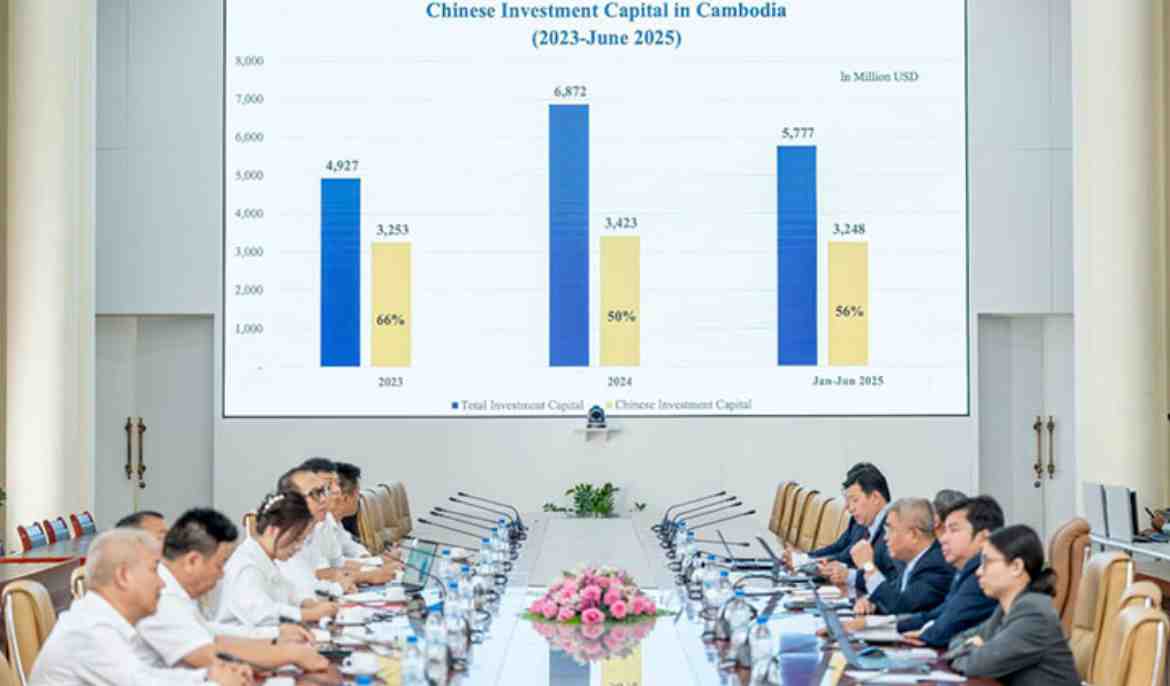Synopsis: Kingdom’s liberal trade and investment policies have played a crucial role in strengthening investors’ confidence and drawing new businesses from China.
A delegation from Hebei province, China, has expressed interest in investing in Cambodia’s renewable energy sector, with plans to support the Kingdom’s transition to clean and sustainable energy solutions.
The investment intention was raised during a meeting on Wednesday with Chea Vuthy, Secretary General of the Cambodian Investment Board (CIB) of the Council for the Development of Cambodia (CDC). The delegation was led by Li Jie, President of Xingtai Shunhe Biotechnology Co., Ltd., a major supplier of ethanol fuel in China, which operates 72 fuel stations across the country.
Li told the CDC that the company is exploring opportunities to develop clean and renewable energy projects in Cambodia, particularly those that contribute to the country’s energy security and environmental protection goals.
She added that their ethanol fuel products, already widely used in China across transport and industrial sectors, could be introduced to the Cambodian market to meet growing demand.
She emphasised that Cambodia’s strategic location, agricultural potential, and investor-friendly policies make it an ideal destination for clean energy investment. The company is especially interested in sourcing local agricultural products such as cassava, sugarcane, and corn to produce ethanol fuel, supporting both environmental goals and rural economic development.
Vuthy welcomed the proposed investment and reaffirmed the CDC’s support for initiatives that align with Cambodia’s green growth strategy. He also encouraged the company to maximise the use of local raw materials in its operations to strengthen the supply chain and generate added value within the country.
The Secretary-General highlighted that Chinese investment has played a vital role in Cambodia’s economic development, and such renewable energy ventures further reflect the deepening cooperation between the two countries.
Speaking to Khmer Times, Lor Vichet, Vice President of the Cambodia Chinese Commerce Association (CCCA), said Cambodia’s investment-friendly environment and strong government-backed incentives are continuing to attract growing interest from Chinese companies, particularly those operating under full foreign ownership.
Vichet said the Kingdom’s liberal trade and investment policies have played a crucial role in strengthening investor confidence and drawing new businesses from China. He pointed out that Cambodia’s expanding network of free trade agreements (FTAs), including deals with China, South Korea, and the Regional Comprehensive Economic Partnership (RCEP), has made the country an increasingly appealing hub for international trade.
“These agreements are key to helping companies simplify market access and export their goods more efficiently,” Vichet said, noting that the trade pacts have reinforced Cambodia’s status as a strategic gateway in the region.
He also emphasised the Royal Government’s ongoing efforts to create a secure and supportive investment climate, with a wide range of fiscal and non-fiscal incentives in place to foster growth.
Among the measures praised by investors are tax holidays, import duty exemptions, and legal protections that uphold investor rights.
With an open-door policy toward foreign investment, growing trade ties, and a stable economic framework, Cambodia continues to emerge as a preferred destination for Chinese businesses seeking regional expansion.
The trend reflects rising confidence among foreign investors in Cambodia’s long-term economic prospects and its role as a dynamic player in the global supply chain.
Cambodia attracted fixed-asset investment worth $5.8 billion in the first half of 2025, marking a robust 77 percent increase compared to the same period last year, according to the latest report from the Council for the Development of Cambodia.



